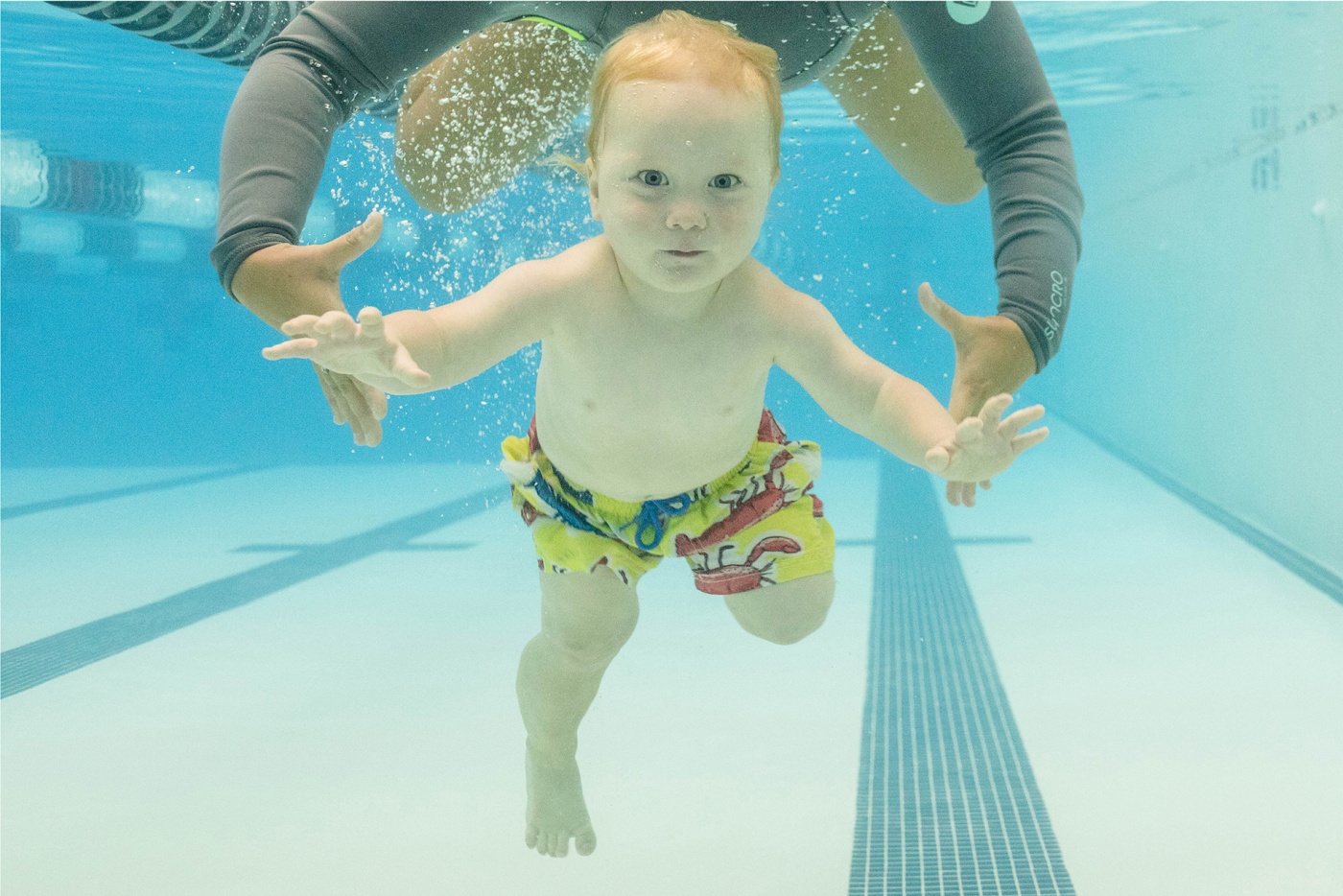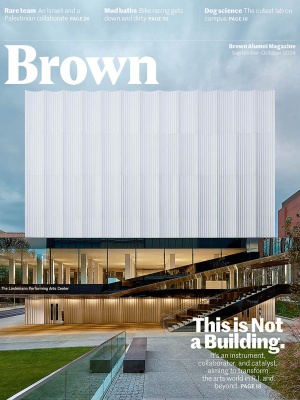Once a week, Danielle Sawka ’22, ’26 MD pauses her busy schedule as a medical student to teach kids how to swim at PODS in East Providence. The lessons look a little different than most: “I teach private lessons for four boys, all with autism, but they are each so different that I have to tailor each kid’s lesson to their personalities. As a result, each of my lessons is really unique.”
A former captain of Brown’s club swimming team, Sawka is one of a small group of swimmers from Brown who are using their skills at PODS to provide children with special needs opportunities to swim and cultivate water safety. As one of the largest child-friendly swimming facilities in Rhode Island and one of the only swimming schools offering lessons to children with special needs, PODS regularly has a wait list that lasts weeks, if not months. Thanks to the support from Brown’s club swimmers, that wait list is gradually getting shorter.
Sawka credits her background in medicine and her past advocacy as inspirations. “My team did a fundraiser for an organization that aimed to reduce disparities in drowning rates among Black youth. Children with special needs also have alarmingly high drowning rates, and it has been rewarding to apply what I’m learning in medical school to reduce these statistics.”
Sawka got involved with PODS after a conversation with Christian Schroeder ’20 ScM, ’26 MD, on the very first day of medical school.
Schroeder previously worked as a swim instructor for children with autism in upstate New York. After completing training at PODS, he soon started modifying the curriculum for children with conditions such as achondroplasia, Down syndrome, and autism.
Since starting at PODS, Sawka has grown the training program by encouraging members of Brown’s club swim team to become instructors too.
“I got trained, and then my mentor at Brown, Dr. Virginia Mensah, inspired me to start a pipeline of students from Brown to volunteer with PODS. After being captain in my junior and senior years, I reached out to my [club swimming] team and created an interest form, which got more interest than expected. We’ve had several people start training and two are finishing up this fall.”
To ensure that they provide the best possible support, trainees complete a comprehensive training program to become certified instructors for children with disabilities.
Each student presents a unique set of circumstances, Schroeder says: “Some of my kids have graduated to general swim classes, while others have even gone on to participate in Special Olympics swimming.”
Susan Pascale-Frechette, the owner and director of PODS, describes the impact of the club swim team on the special-needs segment of her school as “nothing short of remarkable.”
“We want more kids of all abilities to be able to learn how to swim in a way that works for them,” she says. “That’s why we are so grateful to have Christian and Danielle and the people they have brought to us.”






